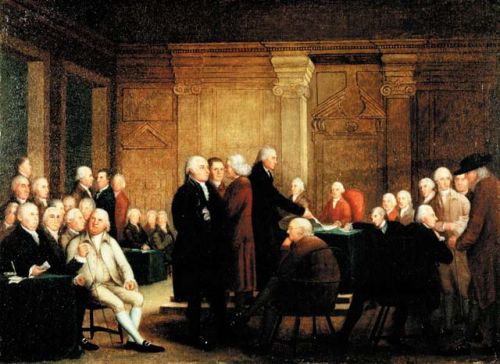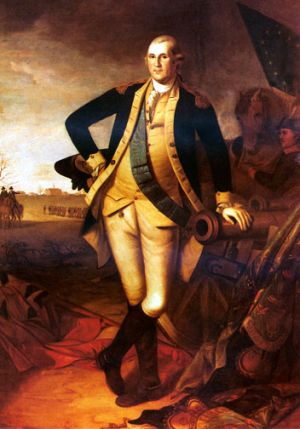The Second Continental Congress convened on May 10, 1775 and would govern the colonies and lead the war effort throughout the War for Independence. Once the Articles of Confederation were passed, it became known as the Congress of the Confederation.
The year was 1775. There was an American army gathering together outside of Boston, getting ready to defend themselves from the British. The battles of Lexington and Concord had been fought just the month before, and the mood was ripe for war.

The Second Continental Congress Voting for Independence
The First Continental Congress had convened the year before and made some attempts to get relief from the king, but to no avail. Many believed it was time to take up arms against the British. They were outraged due to the Coercive Acts and other restrictive measures passed by Congress. It was time for the Continental Congress to reconvene.
Every colony sent their delegates, although Georgia‘s arrived much later than the others. The discussion topic was much different this time than it was the last. In 1774 they squabbled about British taxes and how to reconcile King George III to a reasonable state of peace; this time they discussed war. A continental army was formed, and George Washington was assigned the position of general over the whole army.

George Washington, Virginia delegate to the Second Continental Congress
They had many matters to discuss; they had a war on their hands and no means to fight one. They lacked funding, ammunition, and rations for the soldiers. Furthermore, they lacked soldiers.
Soon, they decided to have anyone they could find just sign up for one year of service. Many men signed up for this, and this is how the first continental army was formed.
Congress also constructed a group to head up foreign relations. They were now in a position to start their own government, but not so much in a position to win that from the king. Most of the delegates did not want to break free of Britain’s iron grasp, they wanted to settle their scores with Britain and once again be united. Due to this, it was agreed that they would send an “olive branch” petition to King George III. In this petition, they declared their undying and absolute loyalty to the King.
When the Olive Branch Petition was ignored and the king sent over Hessian soldiers to suppress them, despite what they had said, friendliness and kinship was cast aside and matters of war were brought in their place. The following year a formal Declaration of Independence was written and signed by all the delegates of the Congress.
This was our final shove at the hand that pushed us down, our final try to break free of our gilded cage, our last scream in the night. This was our war cry.


